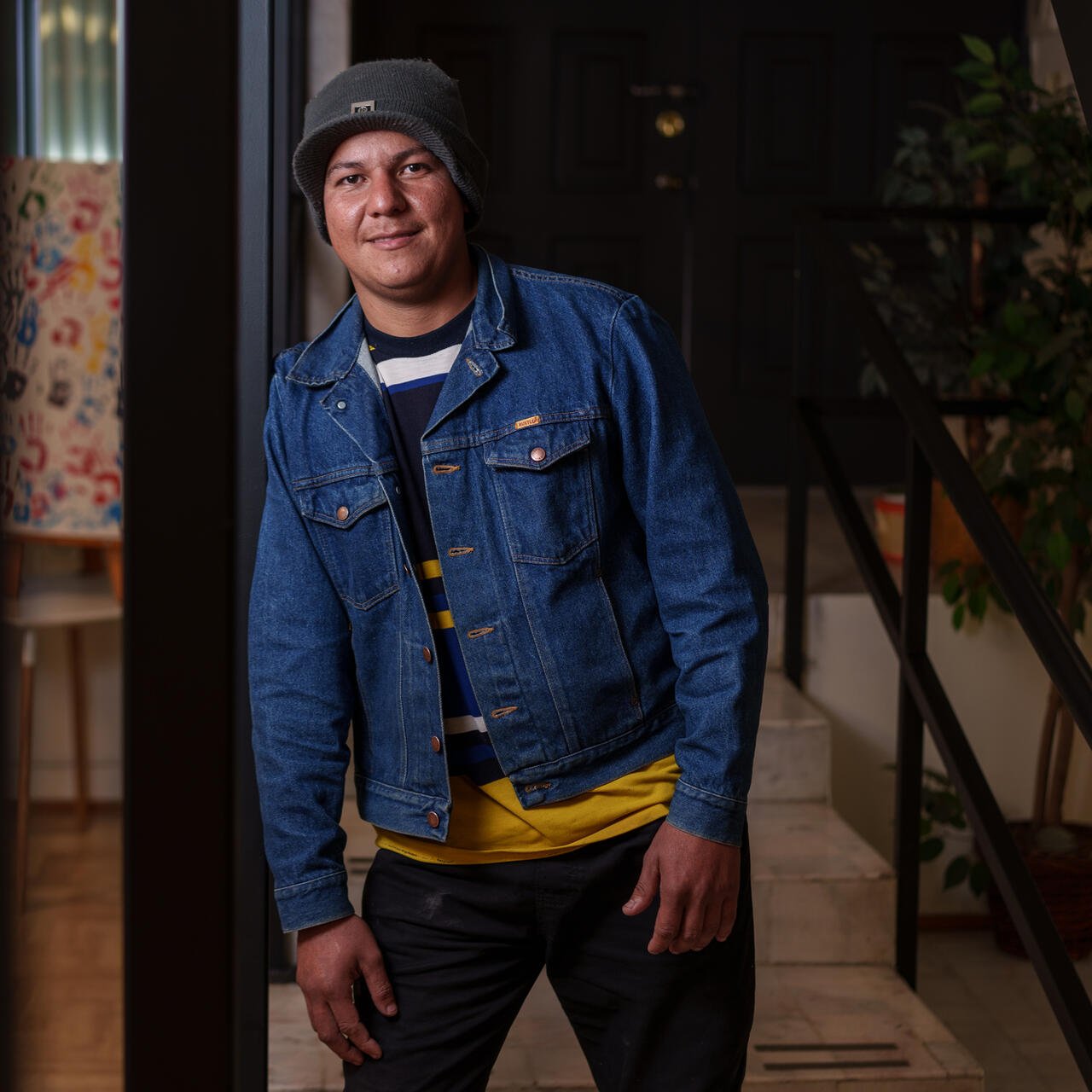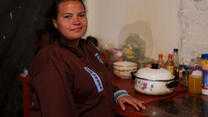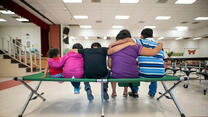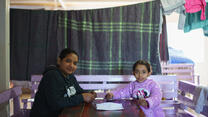
Imagine fleeing your home when it becomes no longer safe to live, traveling thousands of miles by motorcycle, boat, bus and on foot through several countries and a notoriously dangerous jungle, only to be told to turn around and go back.
People arriving at the U.S. border have the legal right to request asylum without being criminalized or turned away. Yet Title 42 had been used to justify over 2.5 million expulsions since March 2020 despite U.S. legal obligations under international and domestic law to provide all asylum-seekers with the right to seek safety.
Many of these asylum seekers are making the dangerous trek from South America and Caribbean countries such as Haiti, Cuba and Venezuela.
Ivan is one of the millions of Venezuelans who have tried to resettle in the Americas. Because of the challenges he and his family faced, Ivan and his younger brother made the difficult decision to embark on the journey to the U.S.-Mexico border.
Their hopes rested on seeking asylum in the United States and finding new opportunities for work.
The harrowing journey
When Ivan and his brother embarked on their journey, they crossed easily through Colombia in two days by motorcycle, motorized canoes and a bus. But they found themselves in a much more dangerous situation when they crossed through the jungle at the Panama-Colombia border.
The Panama jungle, known as the Darién Gap, is notorious for its dense, mountainous terrain, wildlife, and insects, as well as for the crimes committed against vulnerable people, including women and children.
“[In the jungle] you must have physical strength and mental strength because if you don't have mental strength, you go back,” Ivan said.
“When you go into the jungle, you must watch your walk. Why? Because there are many ways to fall from twisting your ankle to breaking a foot and climbing a mountain. It is there, the person dies.”
After their harrowing trek through the Panama jungle, Ivan and his brother made their way up to Mexico. However, on the day they entered Mexico, in October 2022, they found the U.S. and Mexican officials expelling Venezuelans arriving at the border.
They attempted to press on in their journey to safety. But soon after, they found themselves in another life-threatening situation.
They came across cartels in one of the cities bordering North East Mexico and were forced to spend around $500 to continue on to the border. This encounter almost became Ivan’s breaking point to return to Venezuela.
Stranded
But at the border, they found hope. Ivan and his brother were able to connect with a pastor who runs an IRC-supported shelter.
“I trust God a lot, and I ask my God to give me peace and give me perseverance. The contact was through the pastor…we came by bus and got there. He was already waiting for us.”
Ivan is deeply grateful that they have access to a shelter and food—basic necessities that are lacking for so many who are seeking asylum. They have also found temporary restaurant work through the shelter.
“The most common needs are to have a place to sleep and rest. Because not everyone has the privilege of being in a shelter where they give him three meals… There are people outside who do not have a shelter, who don't have anything to eat, not even once a day. And it's cold right now.”
While Ivan’s brother was able to make an appointment to seek asylum using a new U.S. government smartphone application, CBP One, Ivan has had difficulty securing an appointment slot—a problem shared by many asylum seekers at the border.
Not only that, but President Biden proposed a new policy that would bar asylum-seekers who crossed through another country on their way to the southern border, unless they had previously applied for (and been denied) asylum in the country of transit. Asylum seekers whose applications were denied in the country of transit will be required to make an appointment at a port of entry through the CBP One app to be able to apply for protection in the U.S.
This policy will make it all the more challenging for people like Ivan, especially with the added threats of violence, kidnapping, and extortion in Ciudad Juárez.
Every day, Ivan wakes up and attempts to make an appointment—so far, with no success. During this time, Ivan has appreciated the counselling and psychosocial support he’s received from IRC staff. The activities at the shelter have provided a welcome distraction, helping him keep his mind off of the long waiting process.
Notably, Ivan participated in the IRC's masculinity group sessions. Funded by the European Union (EU), these sessions provide a safe space for men to express their emotions without fear of being judged through dialogue circles and playful activities.
Participating in the group helped Ivan rest and sleep better at night and rest practicing relaxation techniques he learned during sessions. The groups also help men, who are rarely accustomed to seeking help for their mental health, to redefine what it means to be strong.
As for Ivan, he likes learning about patience during the group sessions. “What we have to do there is build a tower with marshmallows. It teaches how to stop thinking so much about getting an appointment,” he said.
How the IRC and EU respond
As Mexico experiences an unprecedented displacement phenomenon, the IRC works with the EU to provide protection services in northern Mexico. The IRC provides critical support to asylum seekers like Ivan and his brother on both sides of the U.S. southern border and across the arc of migration.
Beyond the masculinities groups sessions, the IRC’s response includes creating physical and emotional safe spaces for women, girls, children and members of the LGBTQ+ community. Protection services are offered there and span from support for survivors of gender-based violence to awareness activities. The sessions allow for moments of reflection on different topics, including the identification of violence and the danger of misconceptions around romantic love.
The EU-funded project also promotes access to trustworthy and up-to-date information through the digital platform InfoDigna. The site connects migrants, refugees and asylum seekers, as they pass through Mexico, with moderators that will follow up on their cases, and orient them to service providers according to their needs.



